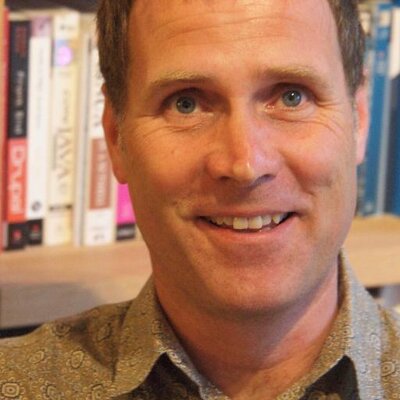Netherlands
See the following -
3 Global Health IT Takeaways You Need to Know - Reflections from ONC 3rd Interoperability Forum
 The Office of the National Coordinator for Health IT (ONC) engages in several global health IT projects from a United States government perspective. ONC works with global counterparts to share experiences, and ensure alignment between global interoperability efforts and the United States' approaches to interoperability. This includes working through worldwide partnerships, bi-lateral and multi-lateral engagements, global networks, and memoranda of understanding. Through these engagements, we focus on advancing common health data standards for global interoperability, enhancing individuals' access to their data, progressing healthcare providers' experiences, and improving factors associated with transparency and competition.
The Office of the National Coordinator for Health IT (ONC) engages in several global health IT projects from a United States government perspective. ONC works with global counterparts to share experiences, and ensure alignment between global interoperability efforts and the United States' approaches to interoperability. This includes working through worldwide partnerships, bi-lateral and multi-lateral engagements, global networks, and memoranda of understanding. Through these engagements, we focus on advancing common health data standards for global interoperability, enhancing individuals' access to their data, progressing healthcare providers' experiences, and improving factors associated with transparency and competition.
- Login to post comments
A New Way Forward for Power Utilities: The Open Smart Grid Platform
 After energy balancing software PowerMatcher was released as open source at Alliander in 2014, I was able to convince more of my colleagues to invest in making more technologies open source. I started the conversation with a question about the Open Smart Grid Platform: "How open is open? Where can I find the code?" The development of the Open Smart Grid Platform started after research was done on how to give municipalities control over their public lighting switching schedule. This schedule is based on ecomomic sense, and is a list of rules for when to switch on and off the street lights. For example, streets lights switch off ten minutes after sunrise...
After energy balancing software PowerMatcher was released as open source at Alliander in 2014, I was able to convince more of my colleagues to invest in making more technologies open source. I started the conversation with a question about the Open Smart Grid Platform: "How open is open? Where can I find the code?" The development of the Open Smart Grid Platform started after research was done on how to give municipalities control over their public lighting switching schedule. This schedule is based on ecomomic sense, and is a list of rules for when to switch on and off the street lights. For example, streets lights switch off ten minutes after sunrise...
- Login to post comments
ACTA Update II
Although ACTA is billed as a global treaty, there are only two participants that really matter: the US and the European Union. If either of those dropped out, it would be completely ineffectual. I think the US is unlikely to do that, for two reasons. First, ACTA is essentially the US copyright industries' shopping list of measures that they would like to see forced on the rest of the world: it gives huge benefits to Hollywood and the recording industry, but little to anyone else.
- Login to post comments
Americans Living Longer Than Two Decades Ago, But Overall State Of Health Care Is 'Mediocre,' Despite Spending Increase: Report
The United States is falling behind its economic peers in most measures of health, despite making gains in the past two decades, according to a sweeping study of data from 34 countries. Read More »
- Login to post comments
Artificial Intelligence Achieves Near-Human Performance in Diagnosing Breast Cancer
 Human and computer analyses together identify cancer with 99.5% accuracy. Pathologists have been largely diagnosing disease the same way for the past 100 years, by manually reviewing images under a microscope. But new work suggests that computers can help doctors improve accuracy and significantly change the way cancer and other diseases are diagnosed. A research team from Beth Israel Deaconess Medical Center (BIDMC) and Harvard Medical School (HMS) recently developed artificial intelligence (AI) methods aimed at training computers to interpret pathology images, with the long-term goal of building AI-powered systems to make pathologic diagnoses more accurate...
Human and computer analyses together identify cancer with 99.5% accuracy. Pathologists have been largely diagnosing disease the same way for the past 100 years, by manually reviewing images under a microscope. But new work suggests that computers can help doctors improve accuracy and significantly change the way cancer and other diseases are diagnosed. A research team from Beth Israel Deaconess Medical Center (BIDMC) and Harvard Medical School (HMS) recently developed artificial intelligence (AI) methods aimed at training computers to interpret pathology images, with the long-term goal of building AI-powered systems to make pathologic diagnoses more accurate...
- Login to post comments
Canceling Elsevier Subscriptions Would Pay for Transition to Open Access
A central question for many people involved in Open Access is whether it can, or will save money. Most analyses suggest that a fully OA environment is cheaper (or at worst similar in cost) for institutions...But for research intensive institutions in particular taking the lead by investing in a transition to Open Access while also covering the costs of existing subscriptions could be expensive. At the same time real concerns are emerging about some traditional publishers successfully driving costs higher. How can countries and institutions invest in creating an Open Access environment that serves their needs and brings costs down without spending too much on the transition?
- Login to post comments
Countries Spending The Most On Health Care
The United States currently spends more per person on health care than any other developed country. Health outcomes in the U.S., however, are among the worst...
- Login to post comments
Dutch Ban Poultry Transport Over ‘Highly Pathogenic’ Bird Flu Strain
The Netherlands has discovered a “highly pathogenic” bird flu virus that can be transmitted to humans. The authorities have banned poultry transport throughout the country...
- Login to post comments
Dutch Libraries Go To Court To Make Sure They Can Lend Ebooks
As we've noted before, many publishers have the crazy attitude that ebooks shouldn't be lent by libraries, and that it should be made harder for people to access literature in these places if it's in a digital form. Read More »
- Login to post comments
Dutch Parliament: Vendor Dependence Too High a Cost
 The Dutch government’s lack of vendor independence is too high a cost for society, the Dutch Parliament concludes. The government should enforce its policy on open standards in ICT procurement and should also devise exit strategies - to reduce its dependence on ICT suppliers. This week Tuesday, the parliament adopted a resolution criticizing the government for having no open source ambition. The resolution was adopted with 136 votes in favour and 14 against. The parliament calls upon the government to make sure that in any new ICT project, the specifications give open source a fair chance. When proprietary software is selected, this needs to be explained, the parliament stipulates. “(the) dependence on a limited number of large software vendors (is) too strong”, the resolutions says, adding that this can lead to software costs that are too high for society.
The Dutch government’s lack of vendor independence is too high a cost for society, the Dutch Parliament concludes. The government should enforce its policy on open standards in ICT procurement and should also devise exit strategies - to reduce its dependence on ICT suppliers. This week Tuesday, the parliament adopted a resolution criticizing the government for having no open source ambition. The resolution was adopted with 136 votes in favour and 14 against. The parliament calls upon the government to make sure that in any new ICT project, the specifications give open source a fair chance. When proprietary software is selected, this needs to be explained, the parliament stipulates. “(the) dependence on a limited number of large software vendors (is) too strong”, the resolutions says, adding that this can lead to software costs that are too high for society.
- Login to post comments
Dutch PhD-Workshop on Research Design, Open Access And Open Data
For some time now the library at the University of Groningen is organizing workshops for PhDs to raise awareness on the shift towards Open Access. Open Access and copyright are the main themes. The question also to address verifiability of research data came from SOM, the Research Institute of the Faculty of Economics and Business.
- Login to post comments
French, German, Dutch and Italian Hackathons Fuel UK ODF Plugfest
Hackathons in Toulouse (France), Munich (Germany), Woerden (the Netherlands) and Bologna (Italy) involving software developers and public administrations, are providing input for the ODF Plugfest that will take place in London on December 8th and 9th. The first four meetings involve developers working on the Open Document Format ODF and the LibreOffice suite of office productivity tools.
- Login to post comments
Implementing Insurance Exchanges — Lessons from Europe
State-based health insurance exchanges are a key component of the health care reforms included in the Affordable Care Act (ACA). Starting in January 2014, each state's exchange will provide a marketplace where individuals and small employers can compare and purchase health plans. The idea is both to expand health insurance coverage and to foster competition among insurers, thereby promoting cost containment. Read More »
- Login to post comments
In Dramatic Statement, European Leaders Call for ‘Immediate’ Open Access to All Scientific Papers by 2020
In what European science chief Carlos Moedas calls a "life-changing" move, E.U. member states today agreed on an ambitious new open-access (OA) target. All scientific papers should be freely available by 2020, the Competitiveness Council—a gathering of ministers of science, innovation, trade, and industry—concluded after a 2-day meeting in Brussels. But some observers are warning that the goal will be difficult to achieve...
- Login to post comments
Is The Pharmaceutical Industry Doing Enough To Increase Access To Essential Medicines?
A report in The Lancet Global Health journal, citing the World Health Organization’s World Medicines Situation, notes that despite progress in many countries, about a third of the world’s population still has no regular access to essential medicines, and says responsibility to resolve this problem lies with many, including the pharmaceutical industry.
- Login to post comments